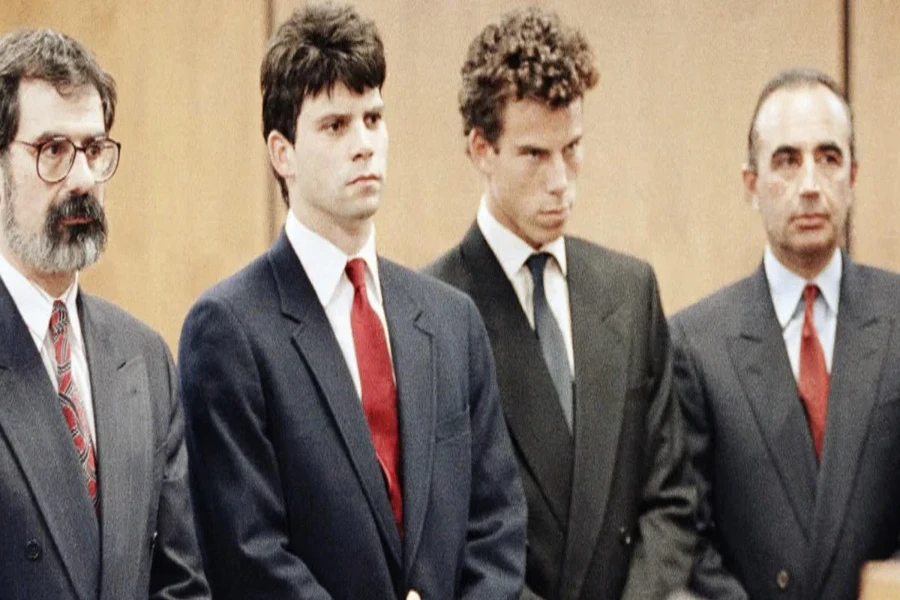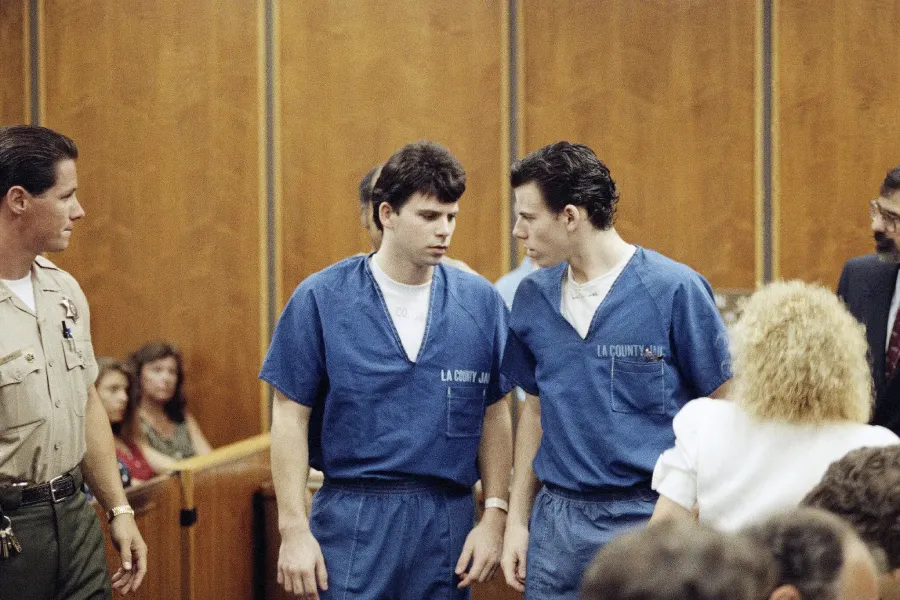The case of Erik and Lyle Menendez, known as the Menendez brothers, has gripped the American public for more than three decades. Convicted of the brutal 1989 murders of their wealthy parents, Jose and Kitty Menendez, the brothers were originally sentenced to life in prison without the possibility of parole. However, in a surprising turn of events in 2025, a judge has resentenced them to 50 years to life, opening the door for potential parole. This article will explore the legal, psychological, and public implications of this decision and what it means for their future.

Background of the Menendez Brothers Case
In 1989, Erik and Lyle Menendez, aged 18 and 21 at the time, shot and killed their parents in their Beverly Hills mansion. The crime scene was horrific: their mother was shot multiple times, and their father was executed in a similar manner. The brothers initially denied involvement, claiming they discovered the bodies upon returning home.
Months later, Erik confessed to his psychologist, who then alerted the police. In 1996, after two highly publicized trials, both brothers were convicted of first-degree murder and sentenced to life without parole.
New Developments in 2025
In a significant legal development, Los Angeles Superior Court Judge Michael Jesic resentenced the brothers to 50 years to life. This change was influenced by letters from prison officials and correctional staff describing the brothers’ exemplary behavior and contributions to rehabilitation programs.
Though the resentencing does not guarantee their release, it makes them eligible for parole. A hearing with the California Board of Parole Hearings is scheduled for June 13, 2025.
Legal Analysis: Why the Resentencing Matters
Eighth Amendment and Juvenile Sentencing
One of the critical legal arguments in favor of resentencing involves the Eighth Amendment of the U.S. Constitution, which prohibits cruel and unusual punishment. Over the past decade, the U.S. Supreme Court has ruled that life without parole for juveniles—especially those who were under 21—should be rare and only for the most heinous cases without potential for rehabilitation.
While Erik and Lyle were technically adults at the time, modern neuroscience and case law now consider adolescent brain development and trauma when assessing culpability. The Menendez brothers’ defense argued that years of sexual and psychological abuse by their father impacted their mental state and decision-making capabilities.
California’s Penal Code and SB 260
Under California Senate Bill 260, inmates who were under the age of 23 at the time of their crime and have served a significant portion of their sentence may be eligible for parole if they can demonstrate rehabilitation. The Menendez brothers’ resentencing appears to be influenced by this policy, even though it was not applied directly.

Rehabilitation Efforts Behind Bars
Since their incarceration, Erik and Lyle have reportedly transformed their lives. They have participated in and led numerous prison rehabilitation programs. Erik founded support groups for mentally ill and elderly inmates, while Lyle organized environmental beautification projects within the prison.
Correctional officers and prison volunteers have described the brothers as “peacemakers” and praised their commitment to self-improvement and helping others. These actions played a crucial role in the judge’s decision to allow parole eligibility.
Public Reaction and Media Influence
The Menendez brothers’ case has long fascinated the public. The trials were among the first to be televised in full, sparking intense media coverage and public debate. Documentaries, podcasts, and YouTube series have reignited interest in the case, framing the brothers not only as murderers but also as victims of a deeply dysfunctional and abusive household.
Many now view their case through a different lens—one that considers childhood trauma, mental health, and the long-term effects of abuse. While opinions remain divided, a significant portion of the public is calling for a more compassionate re-evaluation of their sentences.
What Happens Next?
Though resentenced, the brothers are not automatically released. Here’s the legal roadmap ahead:
- Parole Hearing: On June 13, the California Board of Parole Hearings will assess whether Erik and Lyle are suitable candidates for release. Factors will include their behavior in prison, psychological evaluations, and potential threat to public safety.
- Governor Review: If the parole board recommends release, the decision moves to California Governor Gavin Newsom, who has the authority to approve, reverse, or modify the recommendation.
- Clemency Petition: The brothers have also filed a clemency request. If granted, it could lead to their immediate release regardless of the parole decision.
Legal Experts Weigh In
Criminal justice experts are split on the implications. Some argue that resentencing undermines accountability for heinous crimes, while others believe the justice system should recognize genuine rehabilitation.
Professor Amanda Steele, a criminal law scholar at UCLA, notes: “This decision reflects a broader trend in American jurisprudence toward emphasizing rehabilitation over retribution, especially when there’s evidence of long-term abuse.”
FAQs
Are the Menendez brothers still in prison?
Yes. Although resentenced, they remain in custody awaiting a parole hearing.
Can the governor block their release?
Yes. Under California law, the governor can override a parole board recommendation for convicted murderers.
Did the Menendez brothers admit guilt?
Yes. Both have taken full responsibility for the murders in court and have expressed deep remorse.
What role did abuse play in the case?
The defense claims years of sexual and psychological abuse by their father led to the killings. The court did not accept this as a justification in the original trial, but it’s been a central factor in recent legal reviews.
Conclusion
The Menendez brothers’ case continues to challenge the boundaries of justice, rehabilitation, and public sentiment. With parole now a possibility, the legal system must weigh past atrocities against present transformation. Whether or not Erik and Lyle Menendez will walk free remains to be seen, but their journey offers a powerful lens into the evolving American legal landscape.

